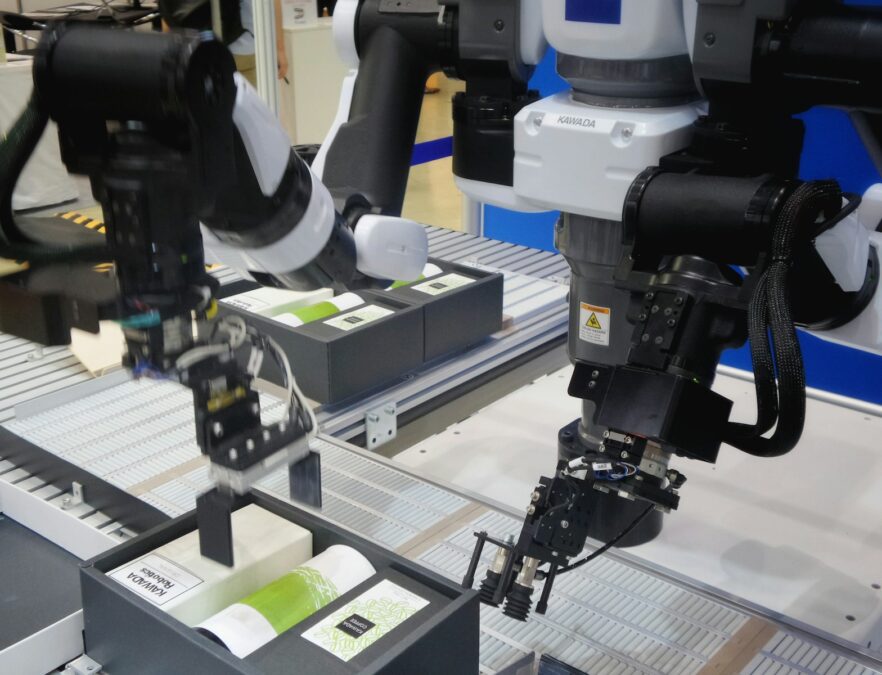Utilizing Machine Learning for Predictive Maintenance
Machine learning in industry is revolutionizing the way businesses approach maintenance and operational efficiency. By leveraging advanced algorithms, companies can detect early signs of equipment failure, significantly reducing downtime and maintenance costs. In regions like Saudi Arabia and the UAE, where industrial sectors are crucial to economic growth, adopting predictive maintenance strategies powered by machine learning can lead to substantial improvements in productivity and reliability. This proactive
The implementation of machine learning algorithms in industrial settings involves the continuous monitoring of equipment through sensors and data collection systems. These algorithms analyze historical and real-time data to identify patterns and anomalies that may indicate potential failures. For instance, in the oil and gas industry, which is a significant sector in Saudi Arabia and the UAE, machine learning models can predict pipeline leaks or machinery malfunctions before they occur. This capability not only prevents costly shutdowns but also ensures safety and compliance with stringent industry regulations.
One of the key benefits of using machine learning for predictive maintenance is the ability to move from a reactive maintenance approach to a more strategic, condition-based maintenance plan. This shift is particularly relevant in the dynamic industrial landscapes of Riyadh and Dubai, where maintaining operational efficiency is paramount. By predicting equipment failures before they happen, companies can schedule maintenance during non-peak hours, minimizing disruption to production schedules and maximizing uptime. This strategic advantage can lead to significant cost savings and improved competitiveness in the global market.
Enhancing Operational Efficiency with AI-Driven Insights
Incorporating machine learning into industrial operations not only helps in detecting equipment failures but also provides valuable insights that enhance overall operational efficiency. AI-driven analytics enable executives and managers to make informed decisions based on data-driven predictions and trends. In the competitive business environments of Riyadh and Dubai, such insights are invaluable for maintaining a leading edge. By understanding the underlying causes of equipment failures and inefficiencies, businesses can implement targeted improvements and optimize their processes for better performance.
For mid-level managers and entrepreneurs, the adoption of machine learning technologies can transform their approach to asset management. In industries ranging from manufacturing to utilities, AI algorithms can analyze vast amounts of data to recommend optimal operational settings and preventive measures. This predictive capability is crucial for avoiding unexpected breakdowns and ensuring that machinery operates at peak efficiency. As a result, companies can achieve higher productivity levels and reduce operational costs, contributing to greater profitability and sustainable growth.
The Role of Leadership and Change Management in AI Adoption
Successful implementation of machine learning in industry requires strong leadership and effective change management strategies. Executives and mid-level managers must be equipped with the necessary skills and knowledge to lead their organizations through this technological transformation. In Riyadh and Dubai, where the push towards digitalization is strong, leadership plays a critical role in fostering a culture of innovation and continuous improvement. By investing in executive coaching services and leadership development programs, companies can ensure that their leaders are well-prepared to navigate the complexities of AI adoption and drive successful outcomes.
Effective communication is also essential in managing the change associated with integrating machine learning into industrial operations. Clear and transparent communication helps in aligning all stakeholders, from top management to frontline employees, with the strategic goals of the organization. In the culturally diverse business environments of Saudi Arabia and the UAE, tailored communication strategies that consider cultural nuances can enhance employee engagement and facilitate smoother transitions. By fostering an inclusive and collaborative environment, companies can overcome resistance to change and harness the full potential of machine learning technologies.
#MachineLearning #Industry40 #PredictiveMaintenance #OperationalEfficiency #IndustrialAI #SaudiArabia #UAE #Riyadh #Dubai

